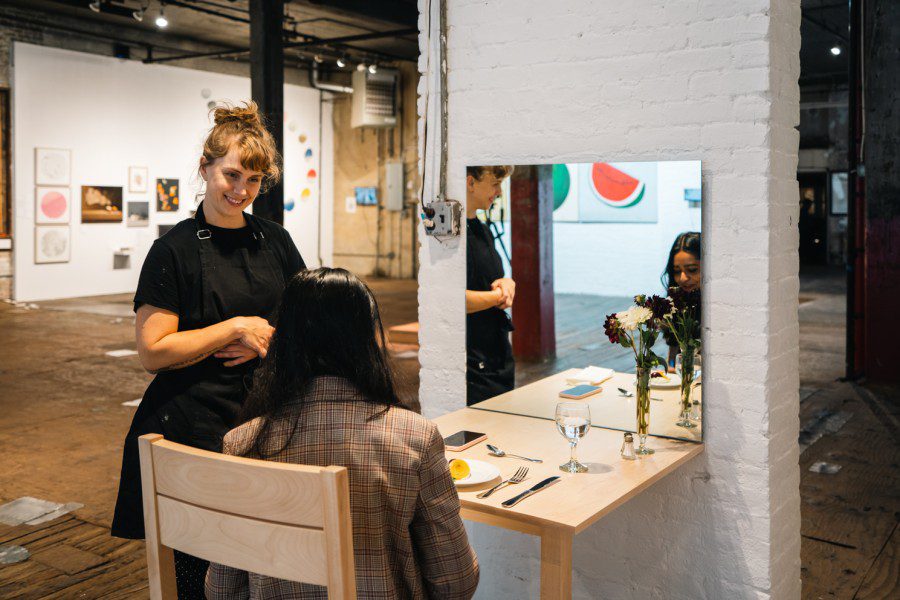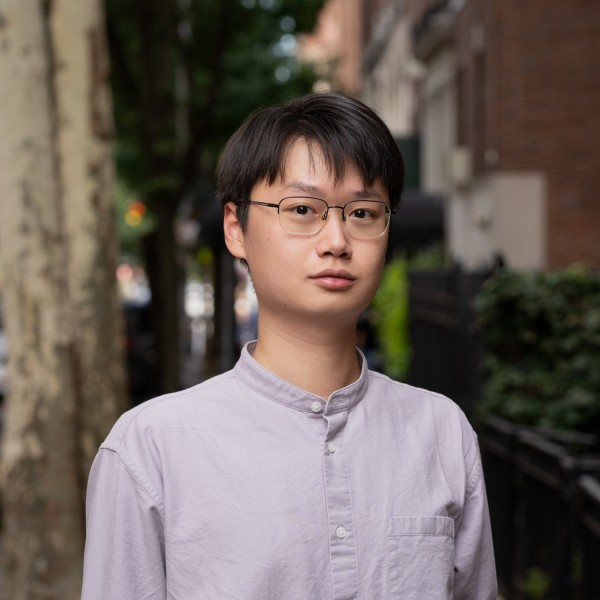‘Never Alone’ sets a table for one
Frida Foberg highlights the importance of taking a moment for yourself in our fast-paced society during a participative performance piece.
Frida Foberg’s “Never Alone” emphasizes the act of taking a moment to be with yourself and with food. (Kevin Wu for WSN)
October 21, 2022
Since the beginning of the COVID-19 pandemic, eating alone has been an integral part of our lives. Swedish artist and architect Frida Foberg presented her take on solitary dining at The Invisible Dog Art Center in Brooklyn on Saturday, Oct. 15. Foberg’s performance “Never Alone” featured a three-course farm-to-table meal consisting of freshly harvested ingredients influenced by the artist’s Scandinavian roots. Guests were seated in the middle of the gallery by a mirror, which was placed in front of a wooden half-table built by Foberg herself. They watched themselves in the mirror, eating their meals in solitude.
Foberg detailed her thought process for the installation, describing dining culture in Sweden and the seasonal timeliness of the meal’s components.
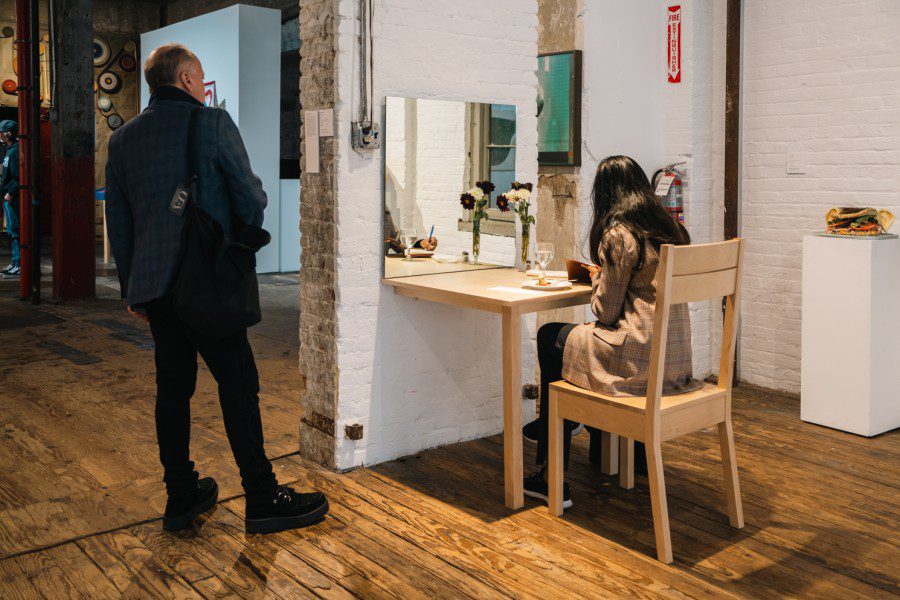
“It’s hard to say that we’re isolated,” Foberg said. “There’s less of a social continuous gathering in Sweden and a lot of people are actually from single households. So having that time where you’re with yourself — it happens a lot.”
The number of solo diners in NYC almost doubled in 2021. While many may associate anxiety with the idea of eating alone, there are now listicles online recommending the top 20 restaurants to dine in solo and TikTok videos of people eating with the hashtag #eatingalone.
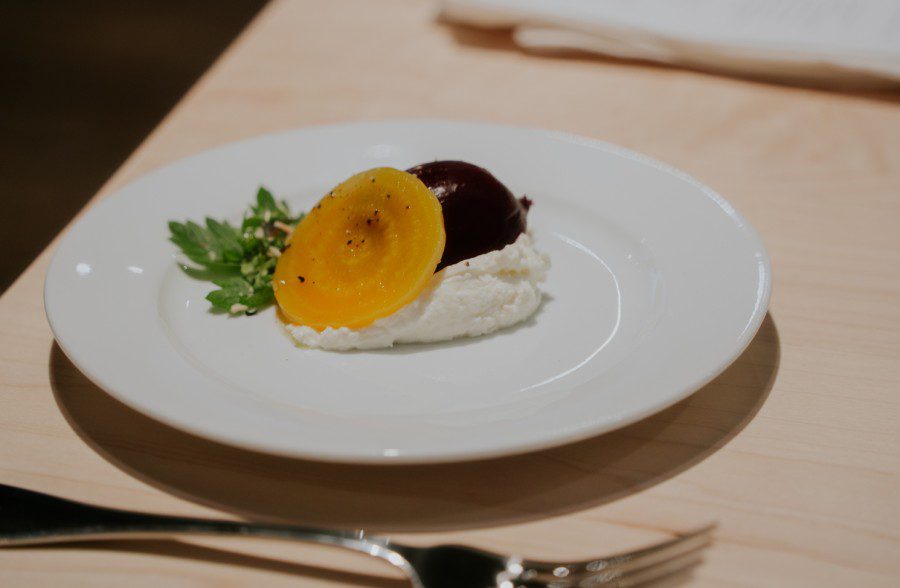
During the performance, I initially found myself confused about what to do with my body while eating, and I started to feel conscious of the tiny facial movements I made when I looked in the mirror. As I made my way through the first course, I noticed every detail and flavor in the food I was consuming. The first course was pickled and boiled beets topped with creamy goat cheese. The tart flavor of the cheese complemented the sweetness of the beets, and the pumpkin seed and watercress seasoning added a tinge of spice and earthy essence to the whole dish. I repeatedly went over the placard on the table listing the farms the ingredients were sourced from, wondering if the ingredients were organic and how they were grown.
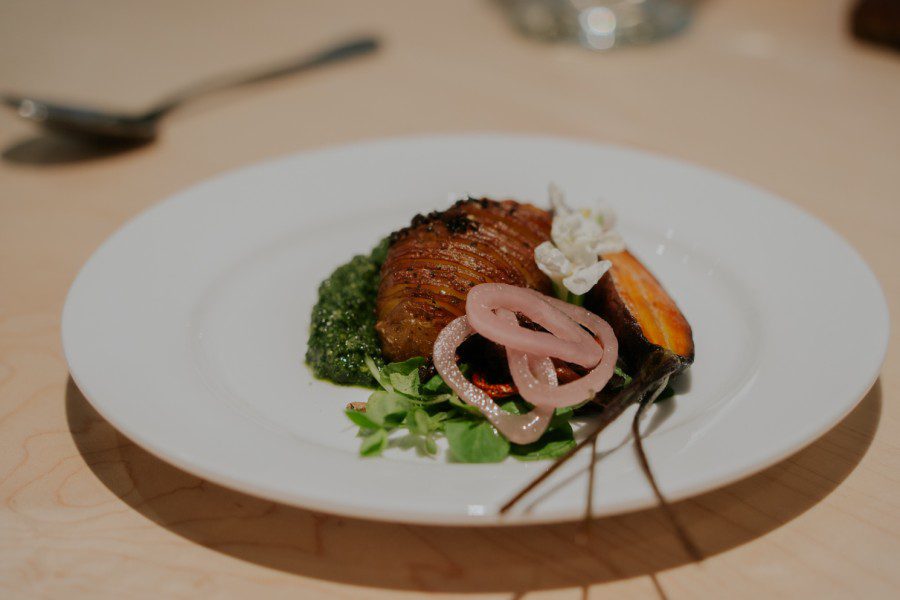
The second dish featured intricately sliced Hasselback Potatoes and sweet honey-glazed carrots. The potatoes were crispy on the outside with soft-boiled interiors, and had a side of pickled onions, chunky pesto, chestnut mushrooms and chanterelles foraged by Foberg’s mother herself. The dish was topped with dill and broccoli flowers, and it was apparent that Foberg paid precise attention to the plating and color composition of the ingredients.
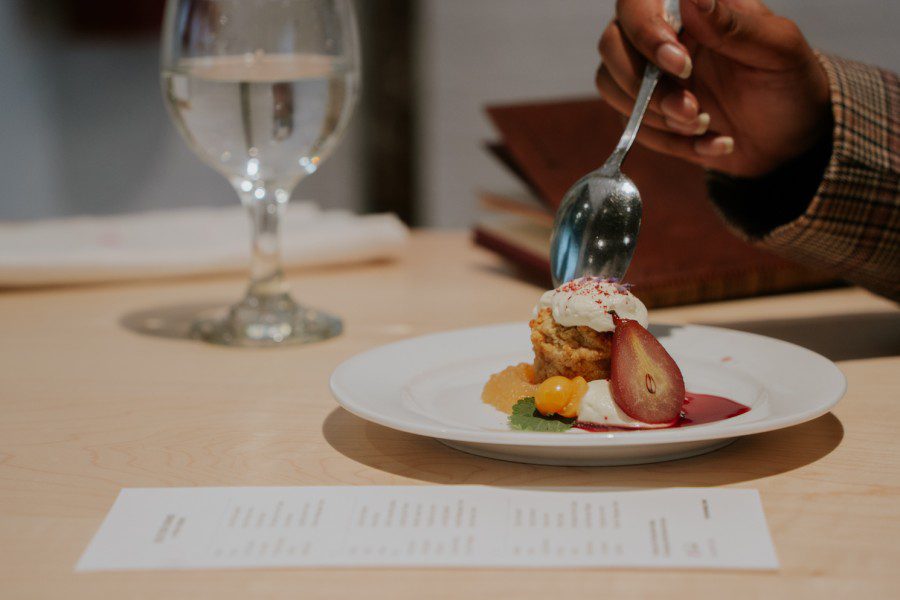
As the meal continued, I felt extremely vulnerable and close with myself. The last course was a crumbly apple cake with a layer of applesauce at the bottom, and it was absolutely delightful. The maple syrup mingled with the applesauce perfectly. The ricotta cream, lingonberry and holy basil on top elevated the comforting flavor profile of the dish. The husk cherry and poached peach on the side were the final bites of a memorable meal.
This was unlike any solo dining experience I had before. Like most college students, I eat many meals alone in the confines of my apartment, methodologically scanning my fridge for the quickest meal and scarfing it down in 10 minutes flat. While one hand shovels food down my throat, the other is responding to every text and email that I’ve ignored. When I am done with this masterfully practiced ritual, I clumsily run to my next obligation and tick “food acquired” off of my mental checklist of chores, never taking a moment to actually contemplate the food I just put into my body.
“I eat alone a lot and I sit on my phone or I do something, but I’m not present with myself in that time,” Foberg said. “We always have ourselves, and if you get to know yourself a little bit better, then you will be a better person for other people as well. I believe a lot in meeting people and having those moments, but I think it’s important to have those with yourself as well.”
I realized I had a stronger relationship with my mobile phone than I did with myself, and I had to actively resist the urge to pull it out and scroll through Instagram or check my email for the millionth time. Even while out with a friend, our phones are a looming presence at the table. Someone ends up caving into the pressure and checking their text messages or latest notifications. I spend more time checking the labels at the supermarket or reading Yelp reviews than actually caring about the company I devour the meal with — even when that company is me.
I left the exhibit no longer paralyzed by the anxiety-inducing experience of eating alone in public. I recognized that I view my relationship with eating as a chore instead of taking the time to enjoy the meal in front of me. When I’m free from my phone, I can appreciate the hard work that went into preparing the meal. But most importantly, I can preserve a tiny moment on the time continuum with just myself.
Contact Alisha Goel at [email protected]





















































































































































